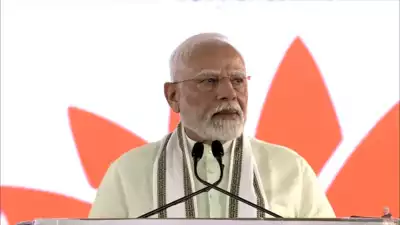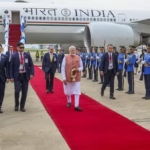Nagpur: Prime Minister Narendra Modi paid a significant visit to the Rashtriya Swayamsevak Sangh (RSS) headquarters in Nagpur, where he lauded the organization’s contributions to Indian society. During his address, he described the Sangh as a “banyan tree” deeply rooted in the culture and traditions of India, symbolizing its widespread influence and enduring legacy.
A Symbolic Visit to the RSS Headquarters
The visit to the RSS headquarters, commonly referred to as “Hedgewar Bhavan,” holds immense political and ideological significance. The RSS, founded in 1925 by Dr. Keshav Baliram Hedgewar, has been a crucial force in shaping India’s nationalist movement and has historically been associated with the Bharatiya Janata Party (BJP), which Modi leads.
Modi’s visit reaffirms his long-standing association with the organization, where he once served as a pracharak (full-time volunteer). His remarks on the Sangh as a “banyan tree” reflect its deep-rooted presence in India’s socio-cultural and political landscape.
Modi’s Address: Emphasizing RSS’s Role
During his speech at the headquarters, Modi praised the RSS for its decades-long commitment to nation-building, character development, and community service. He highlighted the organization’s humanitarian efforts, particularly in disaster relief, education, and rural development.
“The RSS is not just an organization; it is an ideology that nurtures society, just like a banyan tree provides shade and sustenance to countless living beings,” Modi stated.
He further emphasized the Sangh’s role in preserving India’s traditional values while adapting to contemporary challenges. “The teachings of the RSS are relevant today more than ever. Our country needs unity, discipline, and dedication towards development, all of which the Sangh has exemplified,” he added.
Political Implications of Modi’s Visit
Modi’s visit comes at a time when India is gearing up for upcoming elections, making the political significance of the event unmistakable. The RSS has always played a key role in mobilizing support for the BJP, and Modi’s presence at its headquarters is seen as a strategic move to strengthen ties with the organization’s vast network of volunteers.
The visit also sends a strong message to party workers and the electorate, reinforcing the BJP’s ideological foundation and its commitment to Hindutva principles. Political analysts believe that such gestures help consolidate BJP’s core support base while also appealing to a broader nationalist sentiment.
RSS’s Influence on Indian Culture and Politics
Founded with the aim of fostering a strong, united Hindu society, the RSS has had a profound impact on India’s socio-political landscape. It has been instrumental in shaping the ideological backbone of the BJP and continues to influence government policies.
Over the years, the organization has expanded its reach through various affiliates, including the Vishwa Hindu Parishad (VHP), Bajrang Dal, and Akhil Bharatiya Vidyarthi Parishad (ABVP). These groups work in areas such as education, tribal welfare, and religious affairs, making RSS a significant force in India’s cultural framework.
















Leave a comment